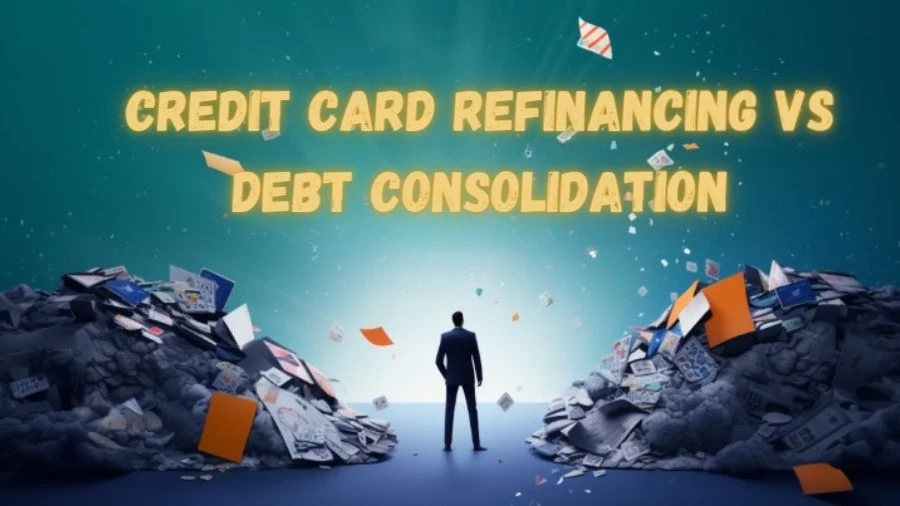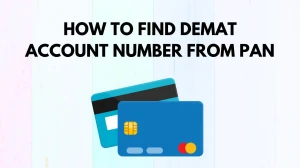
Credit Card Refinancing vs Debt Consolidation
Credit card refinancing involves transferring credit card balances to a new card with a more favorable interest rate, while debt consolidation consolidates multiple debts into a single loan with a steady interest rate and monthly payment.
Updated Jan 03, 2024
On This Page
- Credit Card Refinancing Vs Debt Consolidation
- What is the Difference Between Debt Consolidation and Credit Card Consolidation?
- Does Refinancing Hurt Your Credit Card?
- What Are Some Alternatives to Debt Consolidation Loans?
- What Are the Pros and Cons of Debt Consolidation?
- What Are the Pros and Cons of Credit Card Refinancing?
Credit Card Refinancing Vs Debt Consolidation
Credit card refinancing and debt consolidation serve as distinct approaches to alleviate credit card debt. Debt consolidation involves acquiring a new loan, usually a personal one, to merge multiple credit card debts into a single loan, simplifying payments and potentially securing a reduced interest rate.
On the other hand, credit card refinancing entails transferring existing credit card debt to a new card, often a balance transfer credit card, featuring a low or 0% interest rate during a promotional period. Both methods aim to streamline payments and lower interest rates, but debt consolidation involves a new loan, while credit card refinancing utilizes a balance transfer to a new card with better terms.
What is the Difference Between Debt Consolidation and Credit Card Consolidation?
Debt consolidation and credit card consolidation are strategies aimed at simplifying and managing debt, but they differ in their approaches. Debt consolidation involves combining multiple debts into a single loan, often with a lower interest rate, while credit card refinancing focuses on transferring credit card debt to a new card, usually featuring a lower or 0% introductory interest rate.
The distinction lies in whether the strategy consolidates various types of debts or specifically targets credit card balances.
Aspects |
Debt Consolidation |
Credit Card Refinancing |
|
Interest Rate |
0% introductory rate, may expire in 12-18 months |
0% introductory rate, converts to 16%-20% after introductory period |
|
Additional Costs |
Transfer fee and potential high interest charges |
Transfer fee and high interest charges |
|
Loan Interest Rate Range |
4% - 36%, based on credit score and collateral |
16% - 20% after introductory period |
|
Factors Affecting Rate |
Credit score and collateral |
Credit score and repayment history |
Does Refinancing Hurt Your Credit Card?
Yes, engaging in refinancing has the potential to impact your credit score negatively. This is due to the possibility of the lender conducting a hard inquiry into your credit report as part of the application process. Such credit inquiries can temporarily lower your credit score. However, while refinancing could initially result in a credit score reduction, the lasting advantages of this approach might outweigh this momentary decline.
Refinancing could enable you to secure more favorable loan rates, aligning your payments more effectively with your financial capacity. Through consistent and punctual payments, you might witness gradual enhancements in your credit score over time.
If the act of refinancing has indeed led to a credit score decline, or if your credit score hasn't reached your desired level, there are actions you can take to enhance it. Various resources and tools are available to support you in the journey toward building improved credit.
What Are Some Alternatives to Debt Consolidation Loans?
If you're seeking alternatives to debt consolidation loans, various strategies can help you effectively manage and eliminate debt. From debt management plans offered by nonprofit credit counseling agencies to credit card balance transfers and budget revisions, exploring these alternatives can provide tailored solutions for your financial situation.
Each option comes with its unique benefits, allowing you to choose the approach that best aligns with your debt repayment goals.
Debt Management Plan
Nonprofit credit counseling agencies offer these plans, negotiating improved terms with your creditors. You'll consolidate payments into a single monthly sum paid to the agency, which then distributes to your creditors.
Credit Card Balance Transfer
Opt for a balance transfer credit card to potentially save more on interest. Although a transfer fee of 2 to 5 percent applies, the overall cost reduction could surpass that of a personal loan.
Revise Your Budget
Craft a practical spending plan that aligns with debt repayment goals. Trim unnecessary expenses, explore avenues to boost income, and allocate surplus funds toward reducing your debt burdens.
What Are the Pros and Cons of Debt Consolidation?
Debt consolidation is a financial strategy that involves combining multiple debts into a single loan, often with the aim of simplifying payments and reducing overall interest rates.
While it offers potential advantages such as streamlining finances and improving credit scores, there are also associated drawbacks, including additional costs and the risk of prolonged indebtedness. Exploring the pros and cons is crucial for individuals considering debt consolidation as a means to manage their financial obligations.
Advantages of Debt Consolidation
- Simplifies finances by combining multiple debts into one loan, reducing payments and interest rates.
- May accelerate payoff if the consolidation loan has lower interest, enabling extra payments.
- Potential for decreased interest rates, especially with an improved credit score.
- May lower monthly payments, though longer loan terms could lead to paying more overall.
- Can improve credit score by reducing credit utilization and promoting on-time payments.
Disadvantages of Debt Consolidation
- Additional costs like origination, balance transfer, closing, and annual fees may apply.
- Risk of higher interest rates if credit score doesn't qualify for competitive rates.
- Potential for paying more in interest over the life of the new loan due to extended terms.
- Missed payments can harm credit score and result in extra fees.
- Doesn't address underlying financial habits, potentially leading to more debt.
- Possible encouragement of increased spending, causing balances to rise again.
What Are the Pros and Cons of Credit Card Refinancing?
Credit card refinancing, a strategy to manage credit card debt, comes with its own set of advantages and disadvantages. Understanding these pros and cons is crucial for individuals seeking effective debt repayment methods. Here's an exploration of the advantages and disadvantages of credit card refinancing.
Pros of Credit Card Refinancing
- Can lead to substantial interest savings, potentially reducing APR to 0%.
- Quicker and less complex compared to obtaining a loan for debt repayment.
- Transferring balances can make monthly debt management more straightforward and contribute to a gradual credit score improvement.
Cons of Credit Card Refinancing
- Introductory APR offers are temporary, and regular variable APRs may significantly increase.
- Fees, often around 3% to 5%, can inflate the total repayment amount to the credit card issuer.
- Only making minimum payments may not achieve substantial interest savings, especially when regular APR applies.
- Applying for a new credit card involves a hard credit check, potentially causing a minor reduction in the credit score.
Credit Card Refinancing Vs Debt Consolidation - FAQs
1. What is the main difference between credit card refinancing and debt consolidation?
Credit card refinancing involves transferring debt to a new card with lower interest rates, while debt consolidation combines multiple debts into a single loan for streamlined payments.
2. How does debt consolidation work?
Debt consolidation involves obtaining a new loan to pay off various debts, resulting in one monthly payment and potentially lower interest rates.
3. What is the advantage of credit card refinancing?
Credit card refinancing can lead to significant interest savings and simplify debt management through balance transfers.
4. Can debt consolidation hurt your credit score?
While initially, it may result in a slight credit score dip due to a hard inquiry, consistent payments can improve your credit over time.
5. What are the drawbacks of credit card refinancing?
Credit card refinancing can have balance transfer fees, time-limited introductory rates, and potential credit score impacts if not managed properly.




